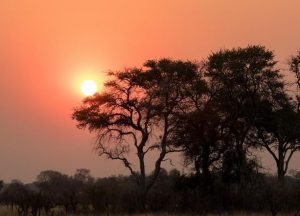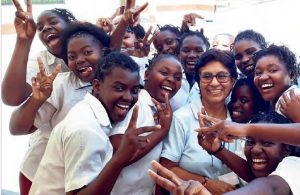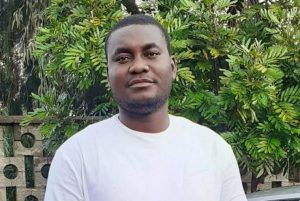For the first time, 17 representatives of the indigenous peoples participate at the Synod for the Pan-Amazon region. They represent 390 ethnic groups, and most of them have been directly involved in the long, in-depth pre-synodal consultation process.
Yésica Patiachi Tayori is a bilingual teacher of the indigenous Harakbut people. She lives in the Apostolic Vicariate of Puerto Maldonado in Peru. She was chosen by Pope Francis to participate in the Synod. “At the beginning – she said -, I felt disoriented at the invitation of the Pope. It came as a surprise. I was worried, but at the same time I knew it was a great opportunity to bring the problems we are experiencing into the Church and to the world.”
She continues: “The fact that the Pope gives us a voice is of great significance. I am aware that not all problems will be solved with the Synod, but the possibility for our voices to be on the agenda is a major step. Until now, politicians have not listened to us. Yet our forests and our resources are a heritage of the whole of humanity.”
Also Delio Siticonatzi Camaiteri, member of the Ashanika native people, comes from Peru. He studied at the Catholic University Sede Sapientiae in Nopoki, the centre of higher education created on the initiative of the Vatican in the vicariate of San Ramón en Atalaya (Ucayali), where indigenous youths from eighteen different ethnic groups study in six different languages. Today he teaches at the University and leads a community of young people from three different ethnicities. He said: “Receiving the invitation was a surprise, I am excited but also confident.”
He points out: “The indigenous people are asking to be listened to and accompanied. They want to progress in accordance with their own culture but together with the Church. Unfortunately, 50% of indigenous people have no priest to guide them. We certainly live in the midst of nature, but we need something more. The challenge for the Church is to have an Amazonian face. We hope that the question of the accompaniment of the indigenous Church will be addressed.”
Enrique Matareco Pofueco from Bolivia, animator of the Mojeño-Ignaciano indigenous population in Bermeo, in the department of Beni, near Sam Ignacio de Moxos. He is 71 years-old and his profile is a typical one for those considering the priestly ordination of the so-called “viri probati.” He does not comment on the debate that agitated the eve of the Synod, although he recognises that it would be “an important thing” and, if it were to happen, he would be “available.” In the communities in which he serves “there is a lack of priestly vocations. I have celebrated the celebration of the Word for decades, I coordinate baptismal and marriage preparation.” He continues: “ How should a Church with an Amazonian face present herself? She must present the face of Jesus to the people, being with the people. We must start working and the Synod gives us great hope.”
Anitalia Claxi Pijachi Kuyuedo comes from Leticia, Colombia (department of Amazonas), a stretch of Colombian territory extending between Brazil and Peru. Her efforts focus on promoting the cultural identity and rights of the Huitoto Ocaina people to whom she belongs. This activity brings her into daily contact with the struggles of the Pan-Amazon region and with other, more specific ones in Colombia: “Exploitation of mineral resources, especially illegal gold and coltan mining, along with drug trafficking, the presence of armed groups even after the peace agreement, a fragile justice in a region where the State is absent, social and indigenous leaders facing risks on a daily basis, are but some of the problems of our territory and of the indigenous peoples. In this context, I am primarily concerned with enhancing our ancestral culture from the perspective of indigenous women and children. I did not expect to participate in the Synod. I started to get involved in the pre-synodal meetings and I feel fully part of this journey of the Church, which is also a journey of reconciliation and a landmark event”, with the hope of “touching the hearts of this globalised world.”






